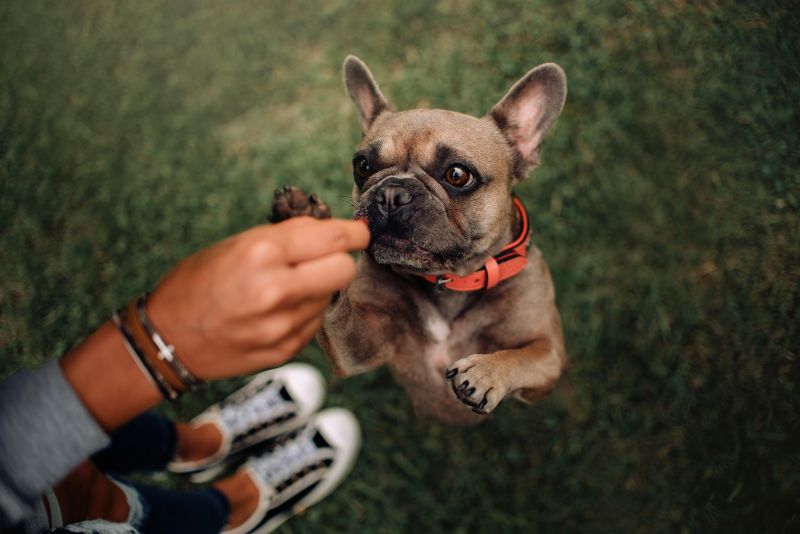Your Dog’s A-B-Cs: Tips on Training a New Pet

How exciting it is when you make the decision to bring a new puppy or adult dog into your pet-loving household. Dogs, while being loyal, loving, and goofy, also require a period of socialization and training. Without these skills, behavioral problems often follow as your pet adjusts to the home.
If you are a new dog owner and are unsure about how to begin the journey to successfully training a new dog, we have you covered. The team at Volunteer Veterinary Hospital is here to offer some great suggestions to these solid skills for a well behaved dog.
Set Your Ground Rules with Housetraining
Housetraining is the process of teaching your puppy or adult dog where to potty and how to follow house rules. This requires a great deal of time and dedication to get your pet into a good routine with ground rules and potty training. Keep the following in mind while you acclimate your pet.
Crate Train
Crate training is an essential component of training your pet to potty in the right place. Young puppies should be crated or kept by your side during this housetraining adjustment. The crate acts like a natural den which discourages your pet from free range peeing in the home. Place their bed, toys, and meals in the crate to make it a positive place to be.
Take Your Pet Out Often
Puppies can only hold their tiny bladders for 30 minutes at a time. Obviously, this will mean a lot of visits to the outdoors. At night, set an alarm to remind you to get up a few times to let your four-legged friend out.
If your dog is an adult, you can wait a few hours between heading outdoors, but the crate can still be an effective way to curb accidents when they can’t be next to you.
After each meal or whenever your dog drinks, take them back outside to relieve themself. Go to the same spot so they can recognize that it is their spot to potty.
Use Positive Training and Rewards
Scolding your pet for “misbehaving” reinforces the negative behaviors. Instead, give them a treat every time they go potty in the right place or follow a command. Each time you take your dog out to do their business, and they do so successfully, immediately give them a reward, whether that is a treat, a verbal praise, a game, or a click from a clicker (or all three).
Teach Them Basic Commands
Your dog’s foundation for solid training relies on teaching them commands. These commands are crucial for their safety and well-being. Some of the most important commands, such as “sit”, “stay”, “drop it”, “down”, and “come”, will provide the skills for more advanced commands to learn. Use the same rewards based training you employ when housetraining your pup.
Sign Them Up for Training Classes
If you are struggling with socializing your dog and getting them to listen to you, professional training is a great way to teach these essential skills. Training classes are a safe and supervised way for your dog to also be exposed to other pet peers.
Training a New Dog
The thing to remember about training is that it takes dedicated time and consistency. Repetition in each command or skill needed by your dog will result in success, but not without some bumps along the road to great dog training. If you would like help when training a new dog, please contact us. We are your partners in making for a happy, healthy, and well-behaved adult dog.

